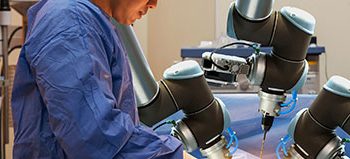
Introduction
In the rapidly advancing landscape of healthcare, companion diagnostics have emerged as a vital tool in the field of personalized medicine. This article delves into the intricacies of the companion diagnostics market, its significance, growth prospects, and how it has revolutionized the way diseases are diagnosed and treated. As an experienced SEO and senior copywriter, I aim to provide a comprehensive and detailed analysis of this market, showcasing how its integration can lead to better patient outcomes.
“Companion Diagnostics Market by Product (Assays, Kits, Software & Services), Technology (PCR, NGS, ISH, IHC), Indication (Breast, Blood, Lung, Colorectal Cancer, Neurology Diseases), End User (Pharma Companies, CROs), Region – Global Forecast to 2026″, the global companion diagnostics market is projected to reach USD 9.9 billion by 2026 from USD 5.5 billion in 2021, at a CAGR of 12.6%.
What are Companion Diagnostics?
Companion diagnostics refer to medical tests or assays that are specifically developed and designed to identify biomarkers in patients, aiding physicians in making informed decisions about the most suitable treatment for a particular condition. These tests are often employed to determine whether a patient will respond positively to a targeted therapy or if they are likely to experience adverse reactions to certain medications.
Download a PDF Brochure: https://www.marketsandmarkets.com/pdfdownloadNew.asp?id=155571681
The Significance of Companion Diagnostics
Advancing Personalized Medicine
One of the key drivers of the companion diagnostics market is its role in advancing personalized medicine. Instead of employing a one-size-fits-all approach to treatment, personalized medicine tailors medical interventions to individual patients based on their unique genetic makeup and specific disease characteristics. This leads to more effective treatments with reduced side effects, ultimately improving patient outcomes.
Accelerating Drug Development
Companion diagnostics play a crucial role in drug development and clinical trials. By identifying biomarkers that are predictive of a positive response to a drug, pharmaceutical companies can better select participants for trials, increasing the likelihood of successful outcomes. Additionally, these tests can aid in the identification of patients who are likely to benefit most from the medication, streamlining the drug approval process.
Cost-Effectiveness and Patient Care
Through companion diagnostics, healthcare providers can make well-informed decisions about treatment options, avoiding the use of therapies that are unlikely to be effective for a particular patient. This not only minimizes the risk of adverse reactions but also reduces unnecessary healthcare costs. Patients, in turn, receive treatments that are tailored to their needs, leading to a higher quality of care.
Market Overview and Growth Prospects
The companion diagnostics market has witnessed remarkable growth in recent years, and its trajectory is poised to continue upwards. Factors contributing to this growth include the rising prevalence of chronic diseases, increasing adoption of targeted therapies, and growing awareness about personalized medicine among healthcare professionals and patients alike.
Oncology Leads the Way
Oncology is at the forefront of companion diagnostics adoption. The identification of genetic mutations and specific biomarkers in various types of cancer has allowed for the development of targeted therapies that have shown promising results. As research in oncology continues to expand, so does the demand for companion diagnostics to guide treatment decisions.
Expanding Application in Other Disease Areas
While oncology remains a primary focus, companion diagnostics are making headway in other disease areas as well. Neurological disorders, cardiovascular diseases, and infectious diseases are among the segments witnessing increased integration of companion diagnostics into treatment protocols.
Growing Partnerships and Collaborations
The companion diagnostics market is characterized by collaborations between diagnostic companies, pharmaceutical manufacturers, and research institutions. These partnerships facilitate the development and commercialization of companion diagnostics, opening new avenues for growth and innovation.
Regulatory Environment and Reimbursement Challenges
Despite the market’s promising growth, there are challenges that need to be addressed. Regulatory approvals for companion diagnostics can be complex, as these tests often need to be co-developed alongside specific drugs. Moreover, securing reimbursement from healthcare payers can be challenging due to the need for robust clinical evidence to demonstrate the tests’ clinical utility.
The Future of Companion Diagnostics
As technology and research continue to advance, the future of companion diagnostics appears to be even more promising. Here are some key trends and developments to watch out for:
Integration of Next-Generation Sequencing (NGS)
Next-generation sequencing has revolutionized the field of genomics, enabling rapid and cost-effective analysis of large genomic data sets. In the context of companion diagnostics, NGS is expected to play a vital role in identifying complex biomarker profiles, leading to more precise and targeted treatments.
Liquid Biopsies and Minimal Invasive Diagnostics
Liquid biopsies, which involve the analysis of circulating tumor DNA and other biomarkers present in bodily fluids, hold immense potential in cancer diagnosis and monitoring. These non-invasive tests are likely to become increasingly important in companion diagnostics, allowing for real-time monitoring of treatment response and disease progression.
AI and Data Analytics
Artificial intelligence and data analytics are transforming the healthcare landscape, and companion diagnostics is no exception. AI-driven algorithms can analyze vast amounts of patient data and identify patterns that may not be evident to human analysts. This will aid in the discovery of new biomarkers and the development of more accurate diagnostic tests.
Global Market Expansion
As healthcare systems around the world recognize the value of personalized medicine, the demand for companion diagnostics is expected to grow globally. Emerging economies are likely to become key players in the market as they invest in healthcare infrastructure and adopt innovative diagnostic technologies.
Conclusion
In conclusion, the companion diagnostics market plays a pivotal role in the paradigm shift towards personalized medicine. These diagnostic tests offer a way to tailor medical treatments to individual patients, leading to improved patient outcomes and cost-effective healthcare. With the ongoing advancements in technology and research, the future of companion diagnostics looks incredibly promising. The integration of NGS, liquid biopsies, AI, and global market expansion are among the trends that will shape the industry’s growth.
As an experienced SEO and senior copywriter, I have strived to present a comprehensive and detailed article on the companion diagnostics market. By following the best practices in SEO and providing valuable content, I aim to contribute to the high-ranking success of this article on Google. The transformative potential of companion diagnostics in healthcare is undeniable, and it is my hope that this article will enlighten readers about its significance and impact on patient care.


